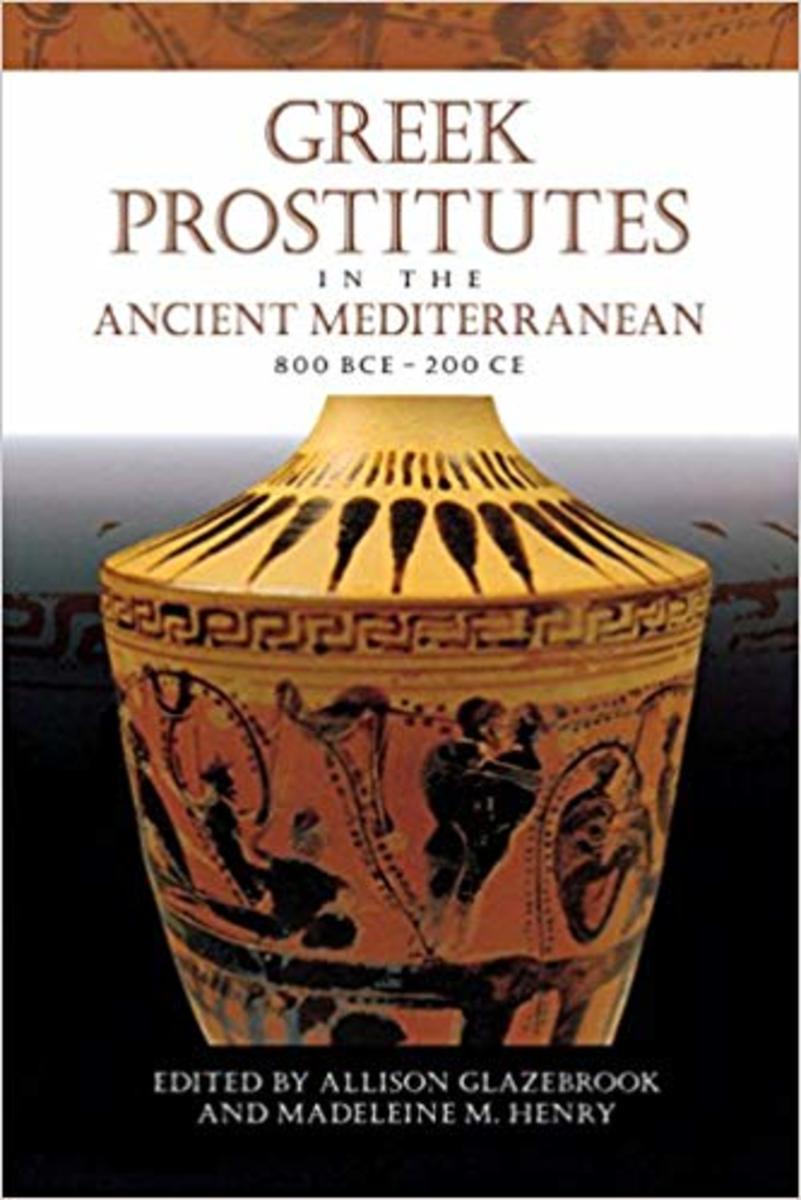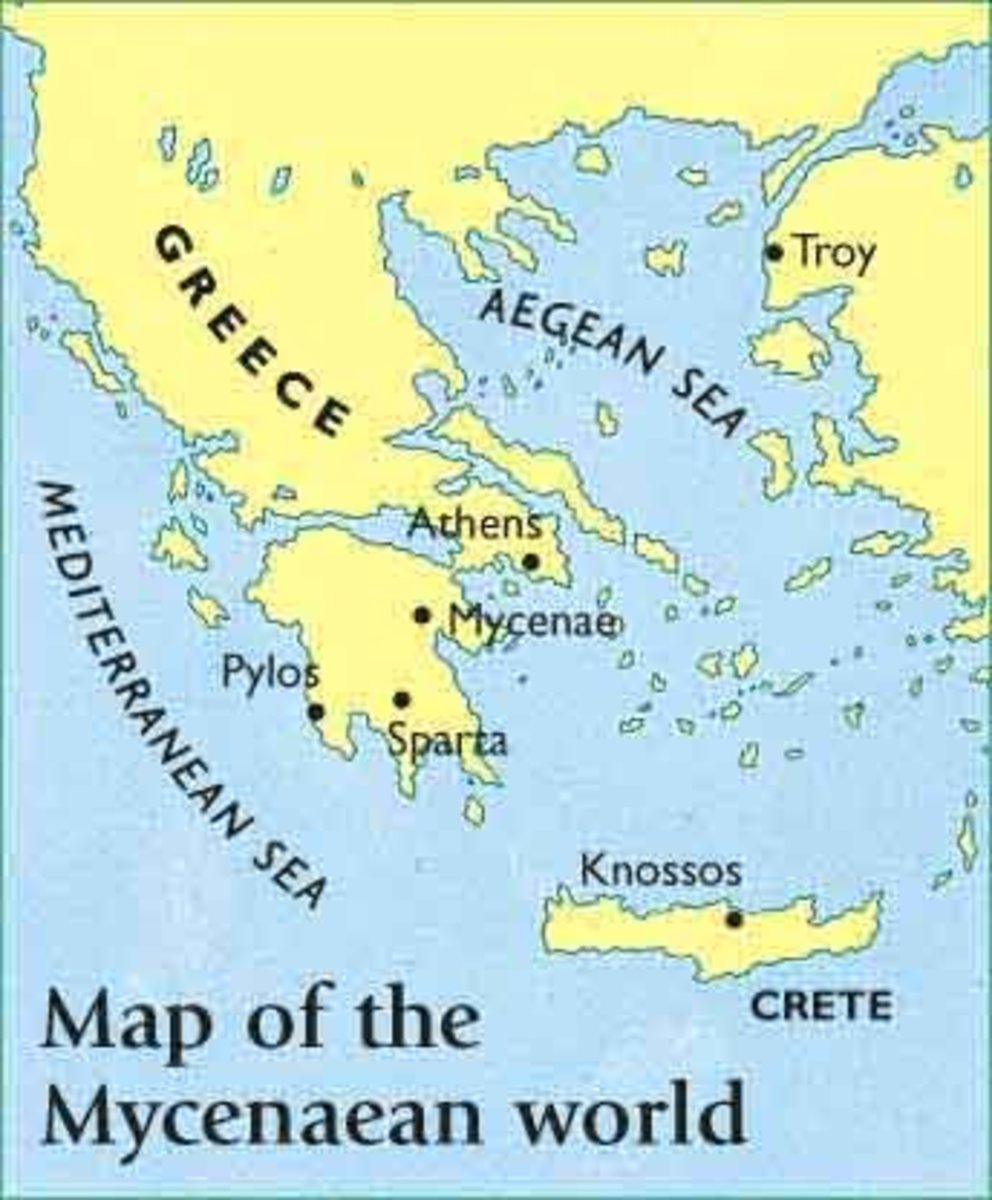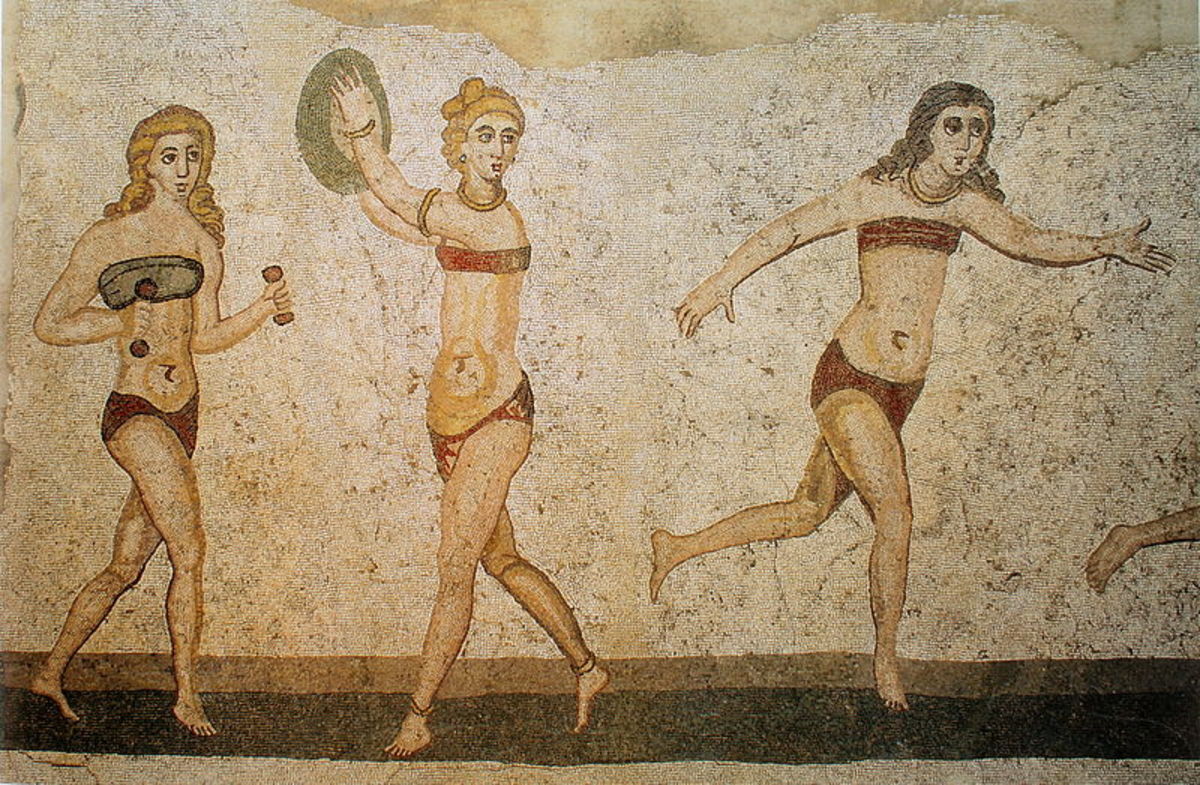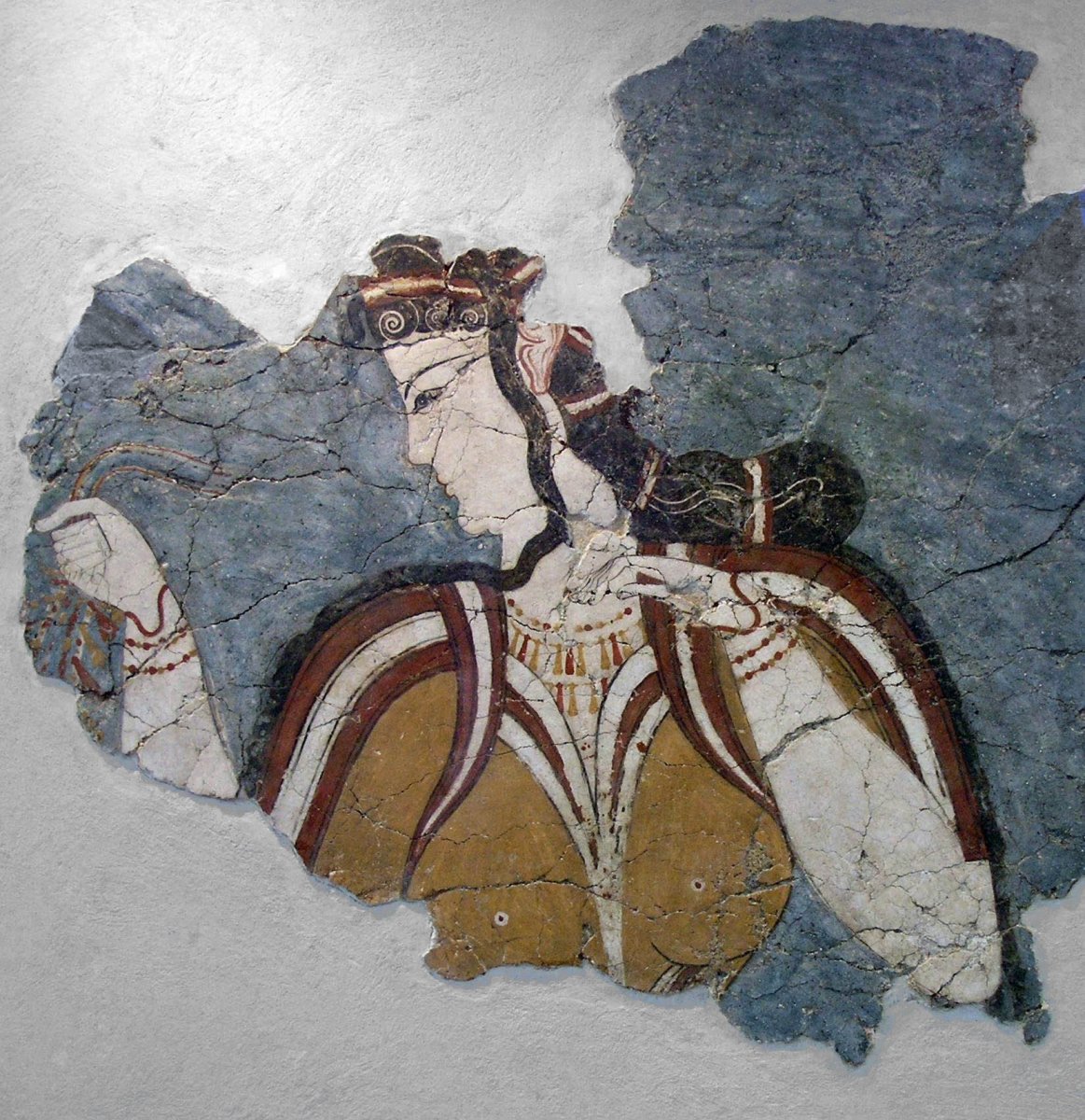- HubPages»
- Education and Science»
- History & Archaeology»
- Ancient History
History of Early Corinth in Greece
History In Corinth, Greece starting in Seventh Century B.C.
It has been a joy to be learning more about Greece and its history especially since I had the pleasure of traveling there. Corinth was one of the places that we visited, and it has quite a history, including the history of Acro Corinth which is just fascinating all on its own. So much has happened there over the centuries, and my goal is to cover it in portions over time.
This is by no means an exhaustive history, but it gives an idea of what happened in Corinth long ago. Going by what archaeology tells us, we see evidences of the beginnings of a city from 7th century BC. By the middle of the 7th century, we see Corinth really begin to flourish. This was especially so under the popular ruler Periander who was the governor of the city from about 625 BC to about 583 BC. During this time, Corinth prospered and became quite an influence as a cultural center. There were numerous colonies founded as well during this time.
The population began to grow to large numbers for an ancient city, about 70,000, around the end of the fifth century.
Beautiful Engraving of Ancient Temple in Greece
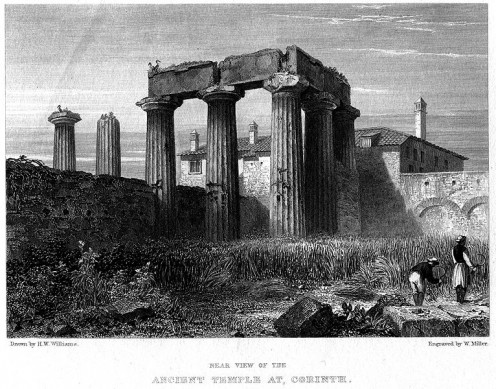
Corinth's location and its effect on the City
Strategically, Corinth couldn't be in a better position to benefit economically and politically. It was a form of assurance in the Mediterranean world to be located at the lower end of an isthmus that was the connecting point of Mainland Greece and Peloponnese Peninsula. Corinth was situated about two miles inland from the Gulf of Corinth on the North. Corinth is located about seven miles inland from the Saronic Gulf as well (on the east). As Strabo had termed, it was the master of two harbors, so to speak, which definitely comes with its benefits.
The Achaean League came into being in 280 BC, which was an association of Greek states. Because of Corinth's influence, which came from its economic and strategic importance, it had a critical position with the league. Times changed however, by the middle of the second century BC.
Temple of Apollo from Ancient Corinth
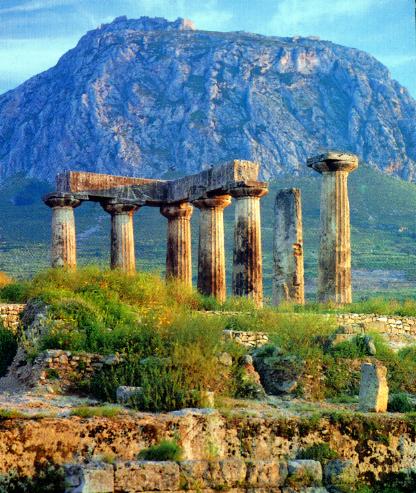
Pressure from Rome and what followed
Over time, pressure from Rome caused Sparta to withdraw from the Achaean League, and this had its ripple effects as you can imagine. Those that remained with the Achaean League, which included Corinth, declared war on Sparta in 146 BC. Soon, the League itself would be at war with Rome. As you can imagine, Rome was quick to act and they sent about 30,000 men to Greece. I can only imagine how that news had to hit them in Greece.
Lucius Mummius led the command and promptly defeated the Achaians at Leucopetra. This was on the isthmus and about two days later, Corinth's defenses were breached and the city fell into the hand of the enemy. There was quite a bit of destruction and loss of life in Corinth. Some historians both modern and ancient will say Corinth was devastated, but evidence seems to show otherwise. It seems that it was not entirely devastated, and it also wasn't abandoned. That said however, it still did not achieve its former level of glory until about 44 B.C. This was the time Julius Caesar designated Corinth as a Roman Colony. The city was renamed something like "The Colony of Corinth in honor of Julius". The exact way it was worded was Colonia Laus Iulia Corinthiensis.
Colonial settlers from Rome began to arrive in Corinth. This probably happened before Caesar died. No one really knows how many settlers Rome sent out. Among other ancient sources, it is suggested that those recruited to go there, were likely from freed slaves and the poor. If that is the case, then many of those may have been Syrian, Egyptian, and some Jews as well. A large percentage of the slave population had been brought to the capital from places in the eastern Mediterranean.
There were mixed views of their arrival, but it no doubt helped Corinth in many areas, including a much needed infusion of financial resources into the economy. After the city was colonized, the ruins and disrepair changed for the better. We know this because Archaeologists have been uncovering evidence of major construction activity. Much more can be said, that I hope to put into another hub before too long.
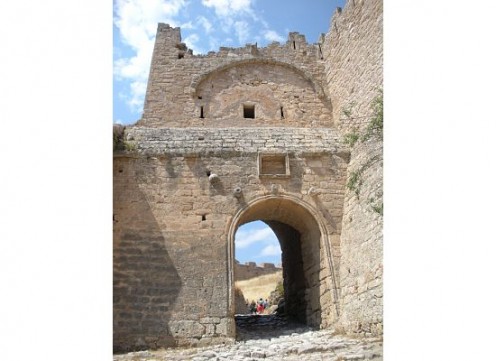

This hub was nominated then voted winner back when HubPages was doing the Top of the Class Contest. Thank you Hubpages and Voters!
- HubPages Top of the Class Contest - New Nominees & Week 18 Winner
HubPages Top of the Class Contest - New Nominees & Week 18 Winner in the HubPages The Hubber's Hangout Forum


